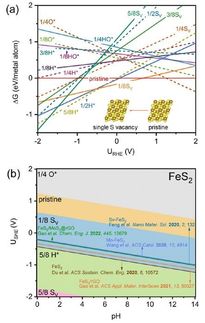BASF and Volkswagen present Science Award Electrochemistry
Award honors outstanding research results in the area of electrocatalysts
The international “Science Award Electrochemistry” from BASF and Volkswagen goes in 2013 to Dr. Karl Mayrhofer, work group “Electrocatalysis”, Max-Planck-Institut für Eisenforschung, Düsseldorf. The jury of representatives from BASF, Volkswagen and from academia selected Mayrhofer for the outstanding results of his research on electrocatalysts, which are crucial for the life expectancy of fuel cells. The scientist has developed new test and analysis methods which enable direct visual investigation of degradation pathways for different catalysts, and which identify fully automatic appropriate materials for catalysts. These research results are an important contribution to realizing highly active and stabile electrocatalysts for efficient electrochemical energy converters.
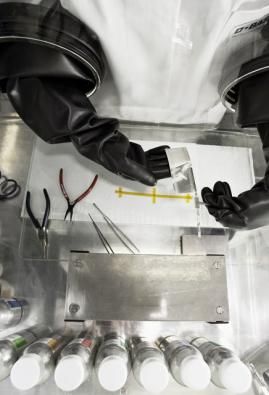
BASF is conducting research into a new generation of lithium-ion batteries. The aim is to significantly increase the batteries’ energy density to specifically extend their use in electrically powered vehicles.
BASF
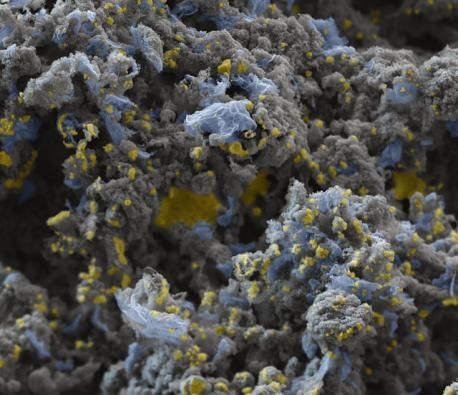
Future battery concepts such as lithium-sulfur will significantly increase the range of electric cars while reducing the cost of the battery to make electromobility more attractive. The picture shows the cathode of a lithium-sulfur battery. Magnification 5000:1 (15cm in width)
BASF
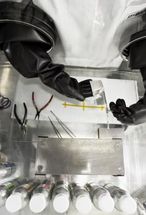
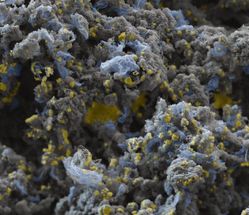
Organizations
Other news from the department science

Get the chemical industry in your inbox
By submitting this form you agree that LUMITOS AG will send you the newsletter(s) selected above by email. Your data will not be passed on to third parties. Your data will be stored and processed in accordance with our data protection regulations. LUMITOS may contact you by email for the purpose of advertising or market and opinion surveys. You can revoke your consent at any time without giving reasons to LUMITOS AG, Ernst-Augustin-Str. 2, 12489 Berlin, Germany or by e-mail at revoke@lumitos.com with effect for the future. In addition, each email contains a link to unsubscribe from the corresponding newsletter.
Most read news
More news from our other portals
Last viewed contents

JetSolutions SA - Villargiroud, Switzerland

Lhyfe - Nantes, France

Wacker Chemie AG - München, Germany
Air Products Sells Polyurethane Pre-Polymers Business to COIM USA

Georg Fischer S.A. - Madrid, Spain

Sika Argentina S.A.I.C. - Buenos Aires / Caseros, Argentina

PENTAC Polymer GmbH - Gross-Umstadt, Germany

Brenntag N.V. - Deerlijk, Belgium

Rötzmeier Sicherheitsbehälter OHG - Salzkotten, Germany

varolab GmbH - Giesen, Germany

Chemtrac, Inc. - Norcross, USA

